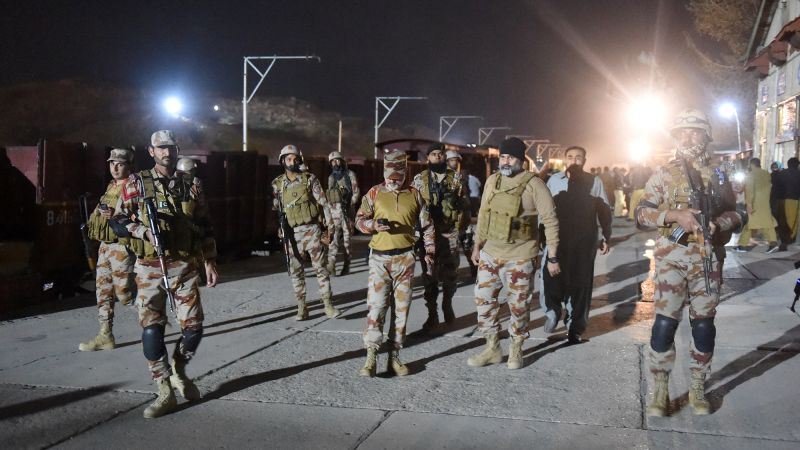In a recent incident in Balochistan, Pakistan, around 350 hostages were rescued following a violent standoff between Pakistani troops and armed extremists from the Baroque Liberation Army (BLA), a militant separatist group. The crisis, which began on Tuesday, resulted in the deaths of 27 hostages and at least 35 militants during the rescue operation. The BLA claimed responsibility for hijacking the Jafar Express train, which had around 450 passengers onboard when the attack occurred.
Witness accounts described the chaos, with one rescued woman likening it to “Day of Judgment.” Security sources indicated that militants had used women and children as shields and were reportedly in contact with Afghan handlers, a claim that has been made by the Pakistani military in its accusations against Afghanistan harboring extremists.
The situation emphasizes the deteriorating security environment in Balochistan—a province rich in resources yet marked by poverty and marginalization of its primarily ethnic Baroque population. The province has seen an increase in separatist violence, especially following the leasing of the strategically important Gwadar port to China as part of its “Belt and Road” initiative, raising concerns about the security of Chinese investments in the region.
Experts suggest that the BLA’s recent attacks indicate an evolution in their strategy and sophistication, pointing to shortcomings in Pakistan’s counter-terrorism measures. Pakistani Prime Minister Shebaz Sharif condemned the attack, emphasizing the need to combat terrorism effectively. Analysts advocate for a fundamental reassessment of security strategies in light of the ongoing violence, which has garnered global attention and poses risks to significant foreign investments, particularly from China.
Source link


